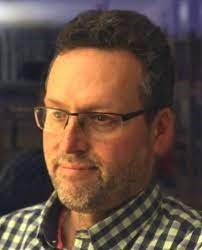Events
Centre Research Seminar: Geothermal Energy Production Challenges

Prof. Ian Collins
| Date: | Wednesday 23 November 2022 16:00 - 17:00 |
| Location: | Online: teams.microsoft.com/l/meetup-join/19%3ameeting_MDViYmFiZD... |
Centre Research Seminar: Geothermal Energy Production Challenges
Geothermal energy is energy extracted from hot rocks in the ground. This energy is used to heat water which produces steam, the steam turns a turbine which powers a generator and electricity can then be used to power homes. Geothermal energy is not weather dependant nor is it time dependant (at least in the short term) overcoming energy intermittency and reliability issues associated with other sustainable energy sources. Therefore, implementing geothermal energy production could allow the governments to reach their goal to reduce carbon emissions. I will give a short overview of geothermal energy production followed by an introduction to some of the key challenges associated with drilling geothermal wells including insights derived from the Eden Geothermal project in Cornwall. I will then present some preliminary data obtained at QMUl exploring solutions to some of these problems related to drilling fluid composition and design.
Ian Collins Bio
Up until his early retirement at the end of 2020, Ian was BP’s Upstream Chemical Sciences Advisor. During his 32 years at BP, he worked in all areas of oilfield chemistry (drilling, well completion, fracturing, cementing, water treatment, enhanced oil recovery, geothermal energy) including 10 years in production chemistry where he led BP’s research, development and deployment activities in scale control and management. After a 2-year period as Ionic Liquid programme manager in BP Group Technology, he was appointed programme manager for waterflood enhanced oil recovery (EOR) where he was instrumental in developing and deploying two key BP EOR technologies, low salinity waterflooding and Bright Water. Ian was then appointed as BP’s Technical Advisor in Chemical EOR and became involved in the full breadth of BP’s EOR activities. These activities allowed Ian to develop deep expertise in clay colloid chemistry and in clay surface chemistry. In 2015, Ian created, and subsequently led, the Upstream Chemical Science Centre of Expertise which brough together all the chemists in BP’s Upstream Technology Group. This allowed close collaboration and easier access to rare chemistry skills. Furthermore, having a critical mass of chemists working together allowed computational chemistry for the first time to be applied to Upstream chemistry problems. During his later years in BP, Ian was instrumental in diversifying Upstream chemistry into technical areas supporting the energy transition such as geothermal drilling, carbon capture, utilisation and storage (CCUS), and hydrogen generation. He also initiated a collaboration with IBM to explore the application of quantum computing to chemistry problems related to the energy transition.
Ian has a background in colloid and surface chemistry and holds a PhD in surface chemistry from the University of Bristol. He is an Honorary professor at Heriot watt University where he has given a waterflood EOR course to the Reservoir Engineering students since 2004 and co-supervised several PhD students. He was Executive Editor of the SPE Production & Operations Journal for 4 years following 12 years as an Associate Editor. He is the author or co-author of over 150 scientific papers (current H-index 35) and is cited as an inventor on 43 patents.
As a visiting professor at Queen Mary University, Ian intends to continue developing sustainable energy solutions, particularly in the areas of geothermal energy and CCUS and is actively pursuing projects in high temperature geothermal drilling fluids. Additionally, Ian is developing projects in the area of water-treatment aimed at removing “forever chemicals” from water sources using clay minerals as adsorbents.
| Arranged by: | QMUL |
| People: | |
| Research Centres: | Bioengineering Research in Engineering and Materials Education Sustainable Engineering Intelligent Transport |

